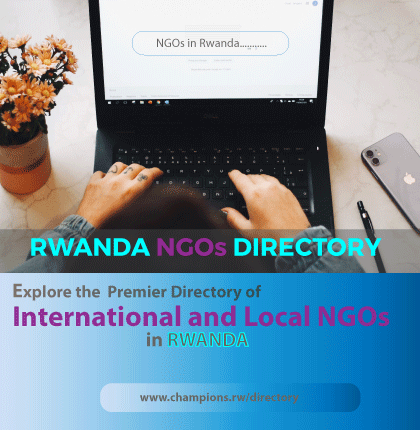Rwanda Boosts School Feeding Budget as One-Third of Population Enrolled in Schools
Rwanda has increased funding for its nationwide school feeding program, reinforcing a policy that provides meals to (…)

Cervical cancer remains one of the leading health threats to women in Rwanda, second only to breast cancer, with more than 700 new cases recorded each year. The disease accounts for roughly one in six cancer-related deaths in the country, according to the Rwanda Biomedical Centre.
RBC released the figures as it launched a nationwide cervical cancer screening campaign on Nov. 17, 2025. Officials say cases have risen sharply over the past 15 years. Rwanda reported 633 cases in 2007; by 2022, that number had climbed to 5,263. Between 2016 and 2022 alone, 747 women died from the disease.
Dr. François Uwinkindi, who heads the Noncommunicable Diseases Division at RBC, said the increasing toll is the reason Rwanda has set a goal to eliminate cervical cancer by 2027. Reaching that target, he said, requires strong vaccination, regular screening and accessible treatment.
Rwanda began vaccinating girls ages 12 to 15 against the human papillomavirus — the virus that causes cervical cancer — in 2011. The program reached 90 percent coverage, meeting the World Health Organization’s recommendation. But Uwinkindi said many women over 30 were never vaccinated, making screening critical.
“Screening is still our biggest gap,” he said. “We are at about 30 percent, and our goal is to reach 70 percent by 2027.”
Under the new campaign, women ages 30 to 49 are urged to visit nearby health centers for free screening. Hospitals across the country have been equipped to treat women who test positive or show symptoms, and specialized cancer clinics are in place for advanced cases.
Cervical cancer often develops without symptoms in its early stages. Once it progresses, women may experience abnormal bleeding, foul-smelling discharge or unusual vaginal fluids. HPV spreads primarily through sexual contact but can also be transmitted through contact with contaminated surfaces.
Early detection can be lifesaving, said cervical cancer specialist Euloge Nzabonankira. “When we catch it early, precancerous changes can be treated before they become cancer,” he said.
Some women avoid screening out of fear, but health workers say the current method allows women to collect their own samples privately.
To meet Rwanda’s 2027 goal, community health workers have begun door-to-door outreach to register all women over 30 and women 25 and older living with HIV, who face higher risk.
Rwanda has increased funding for its nationwide school feeding program, reinforcing a policy that provides meals to (…)
Rwanda has launched a $300 million initiative to expand Volcanoes National Park and protect surrounding communities (…)
Atlantic Microfinance for Africa (AMIFA), a subsidiary of Morocco’s Groupe Banque Centrale Populaire (Groupe BCP) (…)
Foreign investment in Rwanda has surged over the past five years, nearly tripling from $390.3 million in 2020 to (…)

